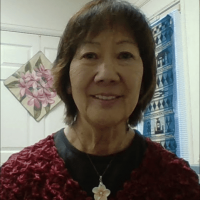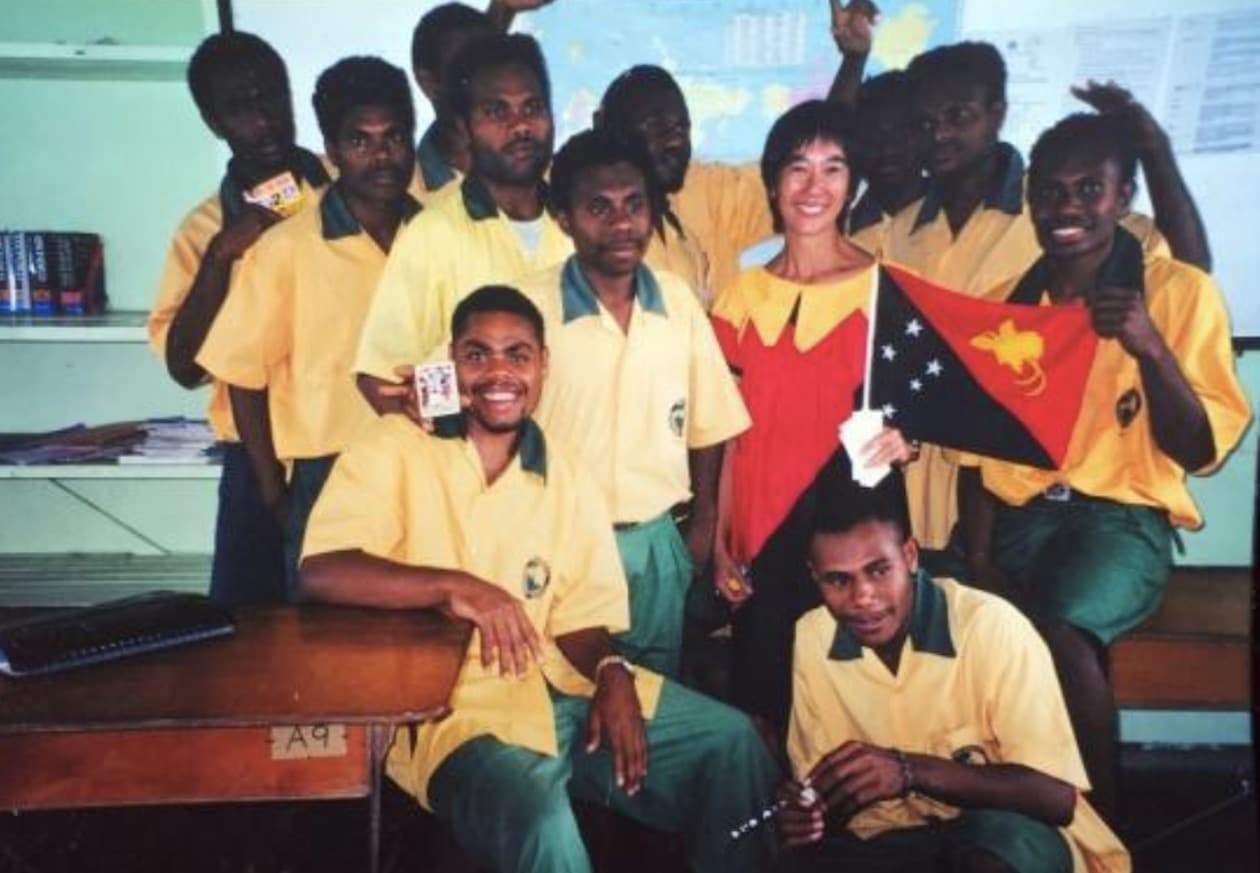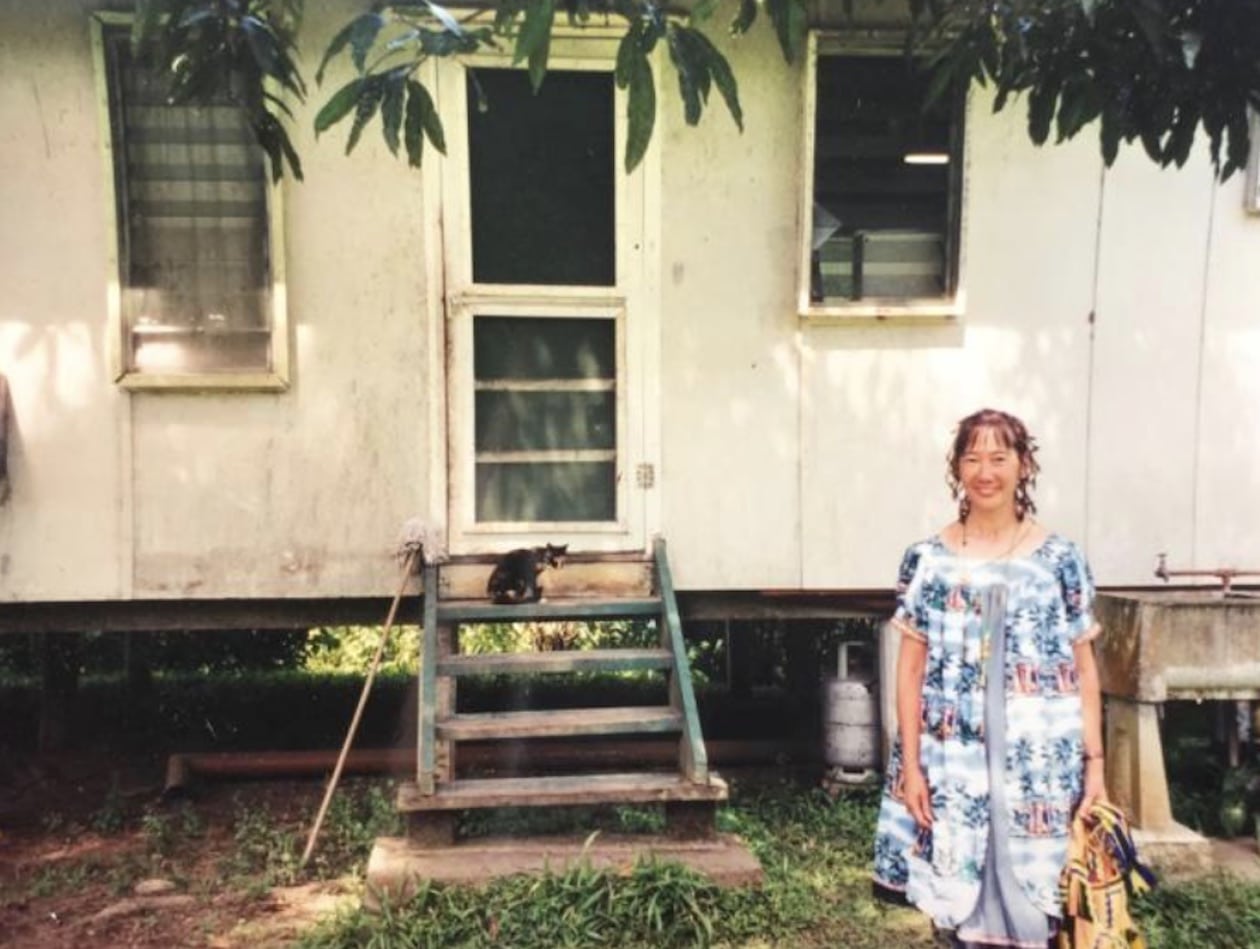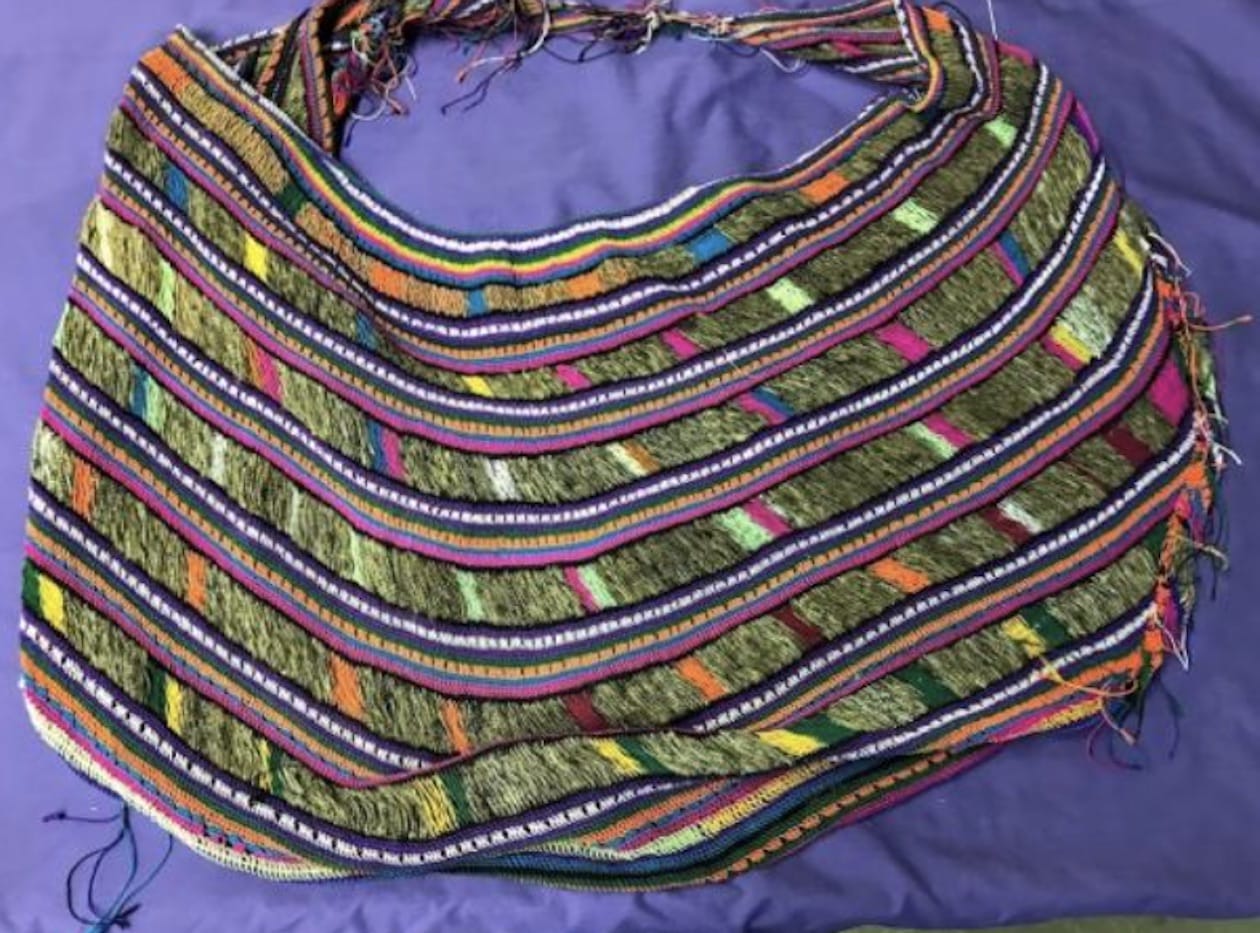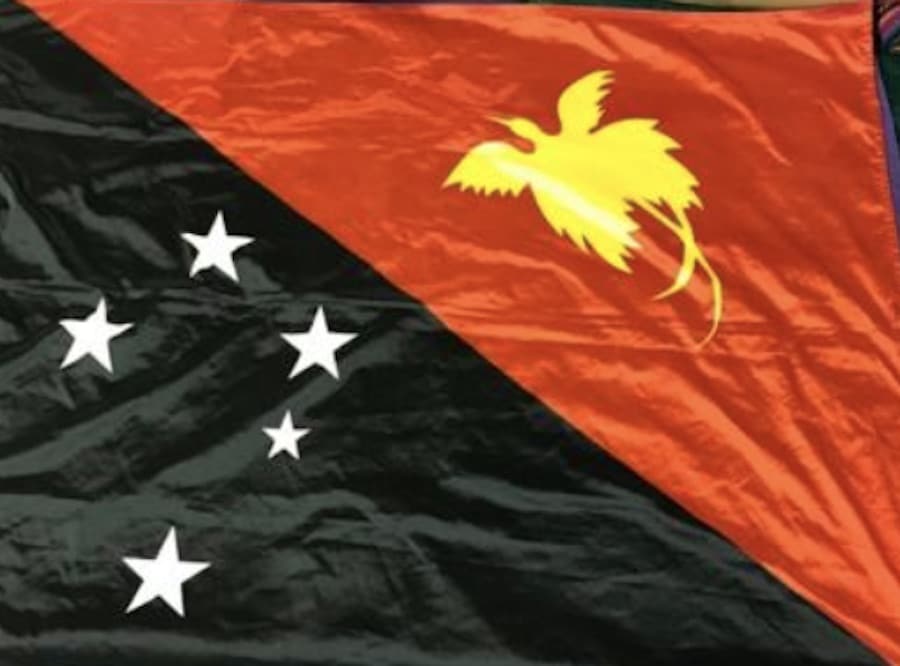From a small winter-cold town in Wyoming, I headed to my teaching assignment in Papua New Guinea, a tropical island nation of 800 languages and cultures, four degrees south of the equator. How would I be accepted? How would I adjust to tropical heat and humidity? How would Peace Corps service change my life and my values?
Appropriate clothing was the magical symbol of acceptance in Papua New Guinea. The perfect way for women to dress in the tropics was the meri-blaus with wrap-around laplap. My neighbor, the school librarian, took me on a 20-minute bus ride to shop for meri-blauses, where she helped me choose a red and green one with puffed sleeves and a scalloped hem. This one was the first and always my favorite of what later became a closetful of dresses in this cool, comfortable style. The simplicity of its design symbolized my own change from a complex to a more simple way of life.
“You look nice in your meri-blaus.” These words greeted me daily at school and in the marketplace. I was dressed as a tru Papua New Guinea meri, a woman. I wore a meri-blaus and laplap at home and everywhere I went, for teaching, church, shopping, meetings, and visiting. My librarian friend sewed a silver meri-blaus and lap-lap for me. My student Mary made a meri-dres for me in her sewing class, a little longer than the more common meri-blaus. What a surprise when she presented me with this carefully stitched red, gold, and black dress, the colors of the Papua New Guinea flag! I came to see this dress as better than a passport to the country I had come to love.
I received other gifts from teachers and students– handmade bags and baskets called bilums. Often woven from plant fibers and decorated with colorful yarn and the brown fur of the cuscus (possum), they served as book bags and food bags. I used large yarn bilums for shopping and carrying my students’ homework notebooks. I used a lightweight basket for carrying smaller items.
On market days women used stretchable bilums with straps gently anchored on their foreheads, the bags riding on their backs, to carry sweet potatoes, coconuts, pineapples, and even sleeping babies. When I used my bilums for shopping, I thought about the friends who gave them to me. Even today, the thought of these gifts reminds me to keep things simple in my shopping and eating habits.
I also learned to give to others freely, regardless of cost or obligations, just as my students did when my Peace Corps experience came to a close. I was surrounded by students offering gifts, saying, “Please remember us.”
Shy, gentle Dessie whispered softly, “I’m sorry, Mrs. Newlin, I have nothing to give you. But Mums and Paps said to give you our family flag.” The treasured flag from the woven mat wall of their home depicted the national Bird of Paradise and the Southern Cross which appeared in the warm night sky.
My student Milton hesitantly approached me with downcast dark eyes. “I’m sorry, Mrs. Newlin. I have nothing to give you. But I will give you this.” He took the worn, stained, T-shirt off his back and handed it to me. The logo on the shirt said, “Paradise Live. Papua New Guinea.” Upon returning to the United States, I often held this shirt close to me, hugging memories of my students, teachers, and fellow volunteers.
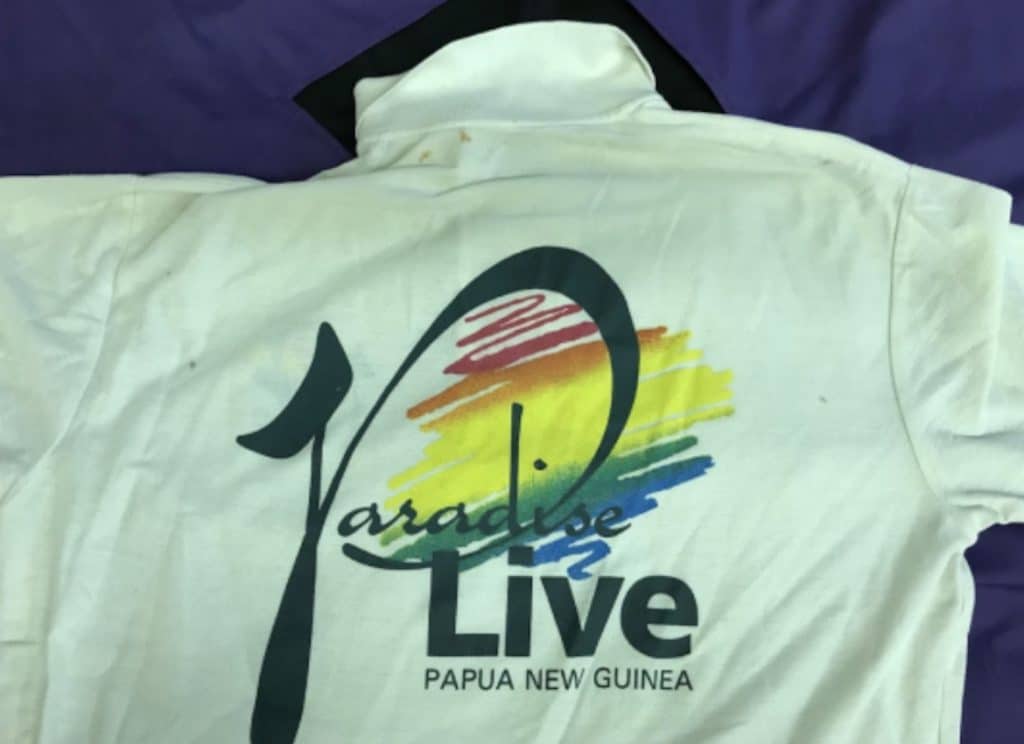
Each time I give a presentation about my Peace Corps experience, I tell of these people who had few possessions and a simple lifestyle. They embraced me with their generosity. When I describe Papua New Guinea, I show visitors the Papua New Guinea flag from Dessie. I wear the red, gold, and black meri-dres from Mary. I carry a colorful yarn bilum over my shoulder. And finally, I tell the story about Milton who gave me the shirt off his back. “Paradise Live,” the motto on his shirt, sums up my Peace Corps experience.

